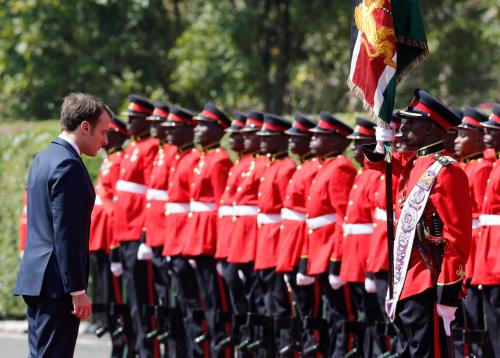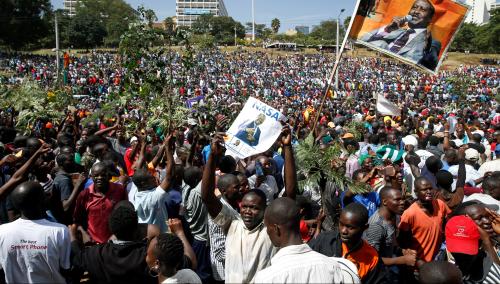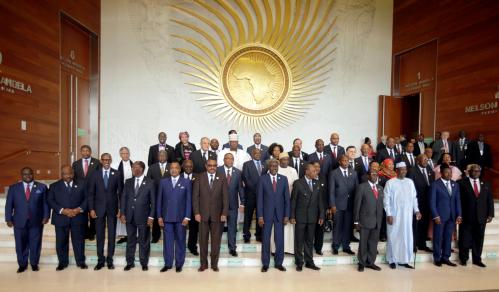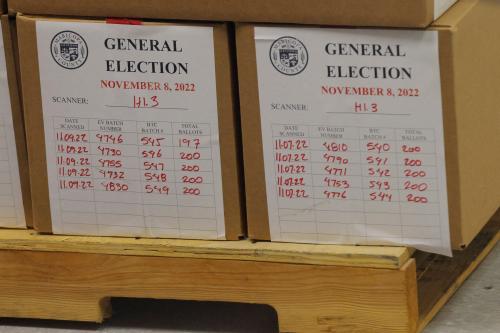Chinese-financed Ethiopia-Djibouti railway is completed
Earlier this month, approximately 2,000 people gathered at Djibouti’s Nagad station to witness the inauguration of the continent’s first standard-gauge, electrified, international railway, which connects landlocked Ethiopia’s capital Addis Ababa with the Port of Djibouti on the Red Sea. Financing for the project, which cost $4.2 billion, came mainly (70 percent) from China’s Export-Import Bank while Chinese engineers worked with the China Railway Group to build it. Once commercial services begin—as soon as in February 2017—the line is expected to reduce the time of transporting goods the 466 miles between the two destinations significantly: from three days by truck to 12 hours by rail. It will also cut transport costs by a third, and each train will be able to transport cargo equivalent to that of 200 trucks. The Ethiopia-Djibouti line is the first stretch in what regional leaders envision will become a pan-African railway network, stretching from the Red Sea to the Atlantic Ocean (a journey that currently takes eight weeks by sea) and boosting intra-African trade. Meanwhile, the China Road and Bridge Corporation has nearly finished constructing a $13 billion railway in Kenya financed again by the Chinese Export-Import Bank. East African countries such as Burundi, Rwanda, South Sudan, and Uganda are also currently planning for their own lines to connect to the regional rail network.
The African Union holds the 28th Annual Summit around youth empowerment
The 28th African Union (AU) Summit was held this week, starting January 22 and ending on January 31. This year’s theme, “Harnessing demographic dividend through investments in the youth,” coincides with the 10th anniversary of the African Youth Charter. The week and a half is filled with various meetings and side events tackling issues from malaria, HIV/AIDS, child marriage, gender, and climate change, in addition to the meeting of the AU Executive Council. Chairperson of the African Union Commission, Dr. Nkosazana Dlamini-Zuma, opened the summit praising the aversion of a crisis in the Gambia, progress in agriculture, and the elimination of bottlenecks in service delivery, but calling strongly for a more vigorous implementation of the African Continental Free Trade Area.
Also on the agenda for January 29-31, the Assembly of the AU will discuss the re-admittance of Morocco into the African Union. Morocco had been a member of the precursor to the AU, the Organization of African Unity, but withdrew in 1984 over the admitted status of Western Sahara. On its side, Morocco has already approved and confirmed the act of AU and its protocol.
Also on the agenda for the end of the summit is the election of the new chairperson of the African Union. Unable to decide on a new chairperson during the 27th Annual Heads of State Summit in July—no candidate received the requisite two-thirds majority—voting was postponed and current Chair Dlamini-Zuma continued to hold the seat. In this attempt, there are three new candidates, which include Kenyan Foreign Minister Amina Mohamed; Senegalese diplomat and U.N. secretary-general’s special representative for the Central African Republic, Abdoulaye Bathily; and Chadian Foreign Minister Moussa Faki. The two returning candidates are Equatorial Guinea’s Foreign Minister Agapito Mba Mokuy and Botswana’s Foreign Minister Pelonomi Venson-Moitoi. (For an in-depth analysis, see AGI Nonresident John Mukum Mbaku’s extensive look at the July candidates as well as the complex politics and repercussions of the July outcome.)
(See Chapters 2 and 6 of Foresight Africa 2017 for more on the summit and what it means for youth, jobs, and governance on the continent going forward.)
The Gambia’s new President Adama Barrow takes office, and the new administration claims $11 million departed along with former President Yahya Jammeh
On Thursday, Gambian citizens welcomed home their new President Adama Barrow who fled the country a few days after his election as exiting President Yahya Jammeh refused to leave office after his electoral defeat. After several pleas from the international community, including a military intervention by the Economic Community of West African States (ECOWAS), last Saturday, Jammeh announced he would be stepping down. Jammeh has now flown into exile and is presently being hosted by Equatorial Guinea, the country confirmed on Tuesday.
Gambia’s political transition has been a rather tumultuous one. A few days after Jammeh’s exit, an advisor to President Barrow announced that the country’s state coffers were missing $11 million. Airport officials also stated that Jammeh departed with a fleet of luxury cars and other items of value. These allegations were criticized by one of Barrow’s aides who stated that the accusations should not have been made before the completion of a thorough investigation. In the meantime, President Barrow named his cabinet members, one of which is Vice President Fatoumata Tambajang, a former minister under the Jammeh regime, who made headlines last month when she vowed to prosecute Jammeh for the alleged crimes committed under his regime.
According to the U.N. refugee agency, 76,000 Gambians had fled the country as tensions rose amid Jammeh’s refusal to leave office. Since Jammeh’s exit, at least 8,000 Gambians have returned home as the country experiences its first democratic political transition.







Commentary
Africa in the news: Ethiopia-Djibouti railway complete, AU summit held, and the Gambia crisis ends
January 27, 2017